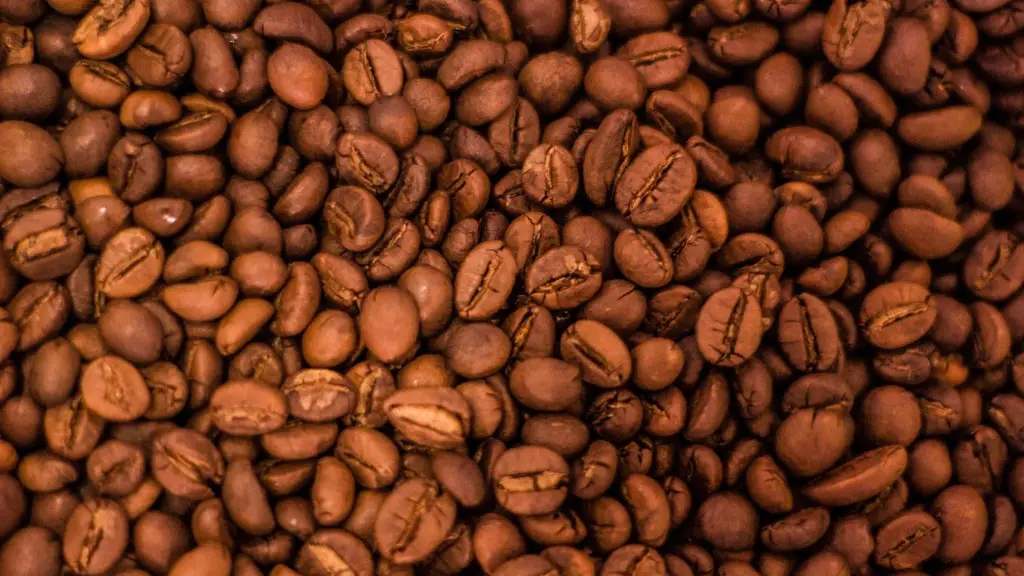Coffee is a beloved beverage around the world. It fuels us in the mornings, accompanies complex conversations and is a key part of our rituals. Coffee is even beneficial and protective in some ways, however you might want to consider the timing of your cup. Drinking coffee on an empty stomach can have adverse side effects, leading even the most die-hard coffee drinkers to rethink their morning mug.
Caffeine, the active ingredient in coffee, is absorbed much more quickly in an empty stomach. In fact, on an empty stomach, it reaches peak levels in the blood stream within 30 minutes. Unfortunately, this can put a strain on the stomach and cause a range of symptoms such as nausea, heartburn and an increase in stress hormones. According to doctors, these symptoms are caused by the coffee being too acidic when drank on an empty stomach. The stomach acid that is secreted after consuming coffee can both irritate the stomach and cause an increase in stress hormones like cortisol, which can lead to jitters, headaches and fatigue.
In addition to being hard on the stomach, coffee can cause dehydration, promoting constipation and headaches. This is due to the diuretic effect that coffee has: it increases the production of urine and can lead to a loss of water and electrolytes. Coffee can also increase the acidity of the stomach, leading to an upset stomach.
One potential beneficial effect of drinking coffee on an empty stomach is that it increases the body’s level of antioxidants, which are beneficial to overall health. Some experts believe that this is because of the increased speed at which the caffeine is absorbed, leading to increased production of antioxidants in the body. However, even if this is true, these benefits may not outweigh the risks associated with drinking coffee on an empty stomach.
So what’s the conclusion? Drinking coffee on an empty stomach is not recommended; it can lead to a range of unpleasant side effects such as nausea, heartburn and headaches. Furthermore, it can lead to dehydration, constipation and an increase in stress hormones. Some experts believe that drinking coffee on an empty stomach could even lead to stomach problems in the long term. Therefore, if you want to enjoy your morning cup of joe, it is recommended that you wait an hour or two after eating in order to reduce any potential adverse side effects.
What Happens To The Body When Caffeine is Ingested On An Empty Stomach?
Caffeine enters the bloodstream through the stomach when ingested on an empty stomach. Because of this, caffeine is initially metabolized using the liver, which can cause an array of adverse side effects.
Because caffeine is broken down immediately by the liver, it has much stronger effects when ingested on an empty stomach. These effects can range from increased heart rate to a spike in stress hormones. Furthermore, caffeine can cause an increase in stomach acid, resulting in nausea, heartburn, and indigestion.
Caffeine can also cause dehydration, as it is a diuretic. This can result in an unpleasant dry mouth and headaches.
How Long Does Caffeine Take To Enter The Bloodstream When Consumed On An Empty Stomach?
When ingested on an empty stomach, caffeine is metabolized more quickly than when consumed with food. It usually takes 30 minutes to reach peak levels in the bloodstream. Therefore, it has a faster and more powerful effect on the body.
In addition to the faster absorption rate, research suggests that consuming caffeine on an empty stomach can lead to an increase in stress hormones. This is because the stomach produces acid to break down the caffeine, which can lead to an increase in cortisol.
Furthermore, on an empty stomach, the lack of food can lead to a quicker absorption rate of the other components in coffee, such as theobromine and theophylline.
Are There Any Benefits To Drinking Coffee On An Empty Stomach?
Some experts believe that drinking coffee on an empty stomach has the potential to increase the body’s level of antioxidants. This is because the caffeine is absorbed more quickly when consumed on an empty stomach, leading to an increase in the production of antioxidants in the body.
However, it is important to remember that even if this is true, these potential benefits don’t outweigh the risks associated with drinking coffee on an empty stomach. For this reason, it is best to wait an hour or two after eating before consuming coffee.
Are There Alternative Ways To Enjoy Coffee Without The Side Effects?
Fortunately, there are ways to enjoy coffee without the adverse side effects associated with drinking coffee on an empty stomach. One of the easiest ways to reduce the side effects is to simply wait an hour or two after eating before consuming coffee.
You can also try out different ways to brew coffee. For example, cold-brewing coffee takes much longer to prepare, but produces coffee that is much less acidic than regular coffee.
Finally, drinking green tea is another option for those looking to enjoy a caffeinated beverage without the associated side effects. Green tea has a lower caffeine content than coffee and has many health benefits, such as being an antioxidant.
Conclusion
All in all, while drinking coffee on an empty stomach can have beneficial effects, the risks associated with doing so often outweigh the benefits. Ultimately, it is best to wait an hour or two after eating or try out alternative ways to brew coffee or drink other beverages in order to enjoy a caffeinated beverage without the adverse side effects.




